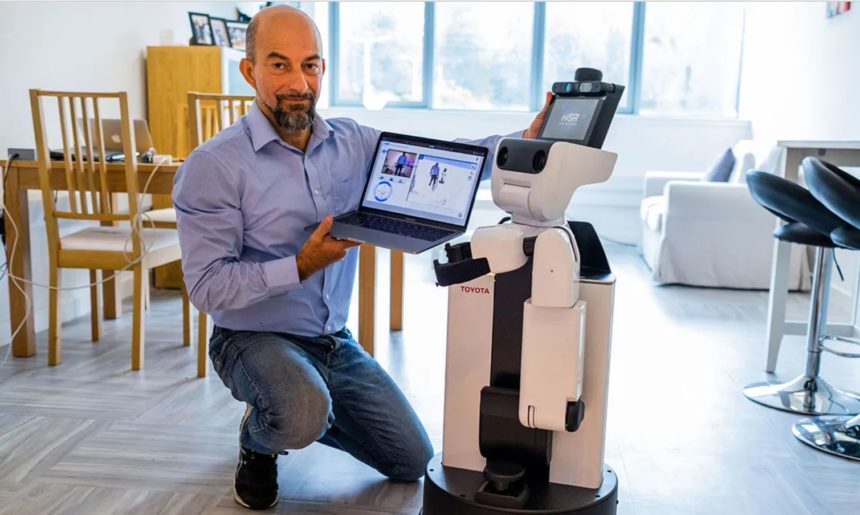
Health practitioners in Scotland are piloting a remote-controlled robot to assess the physical and cognitive health of care home residents with Alzheimer’s disease and related dementias.
Researchers from the National Robotarium at Heriot-Watt University in Edinburgh are using machine learning and artificial intelligence techniques to monitor smart home sensors to detect and analyze daily activities of residents of Blackwood Homes and Care communities.
The system can be programmed to use this information to conduct non-intrusive assessments of an older adult’s cognitive abilities, as well as their ability to live independently.
Combining the system with a tele-presence robot equipped with sensors allows physicians to see through the eyes of the robot, move around the room or between rooms and operate the robot’s arms and hands to carry out more complex assessments, according to a news release from Heriot-Watt University. The robots also can operate semi-autonomously 24/7.
“With gaps between assessments lengthening, the care and support that is being prescribed to assist vulnerable people may become unsuitable as an individual’s physical and cognitive abilities change over time,” Mauro Dragone, Ph.D., an assistant professor in the school of Engineering & Physical Sciences at the National Robotarium at Heriot-Watt University, said in a statement.
The feasibility of the concept was first tested in the National Robotarium’s assisted living lab.
“The experience of inhabiting a distant robot through which I can remotely guide, assess and support vulnerable adults affected by devastating conditions, such as Alzheimer’s disease, grants me confidence that challenges we are currently experiencing to mitigate the impact of such diseases will soon be overcome through revolutionary technologies,” Mario Parra Rodriguez, M.D., a researcher from the University of Strathclyde, said in a statement. “The collaboration with the National Robotarium, hosted by Heriot-Watt University, is combining experience from various disciplines to deliver technologies that can address the ever-changing needs of people affected by dementia.”
Colin Foskett, head of innovation at Blackwood Homes and Care, said that robotics has the potential to improve the ability of residents to live more independently.
“Our partnership with the National Robotarium and the design of the assisted living lab ensures that our customers are involved in the co-design and co-creation of new products and services, increasing our investment in innovation and in the future, leading to new solutions that will aid independent living and improve outcomes for our customers,” Foskett said.




